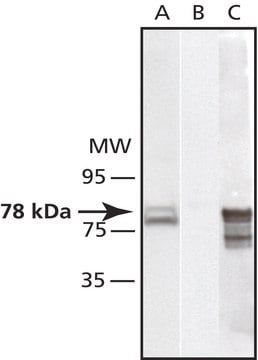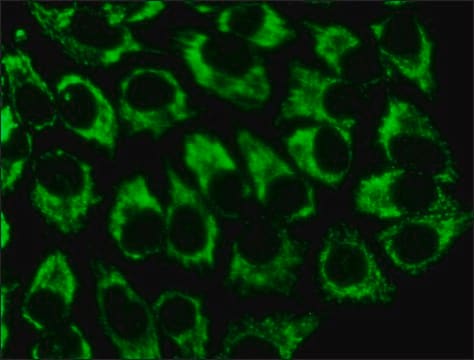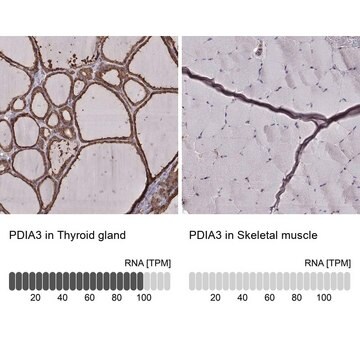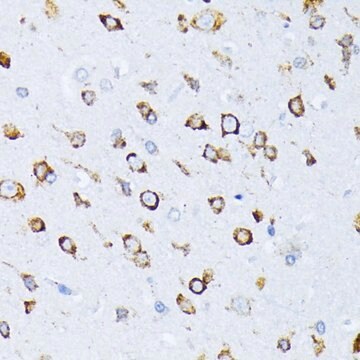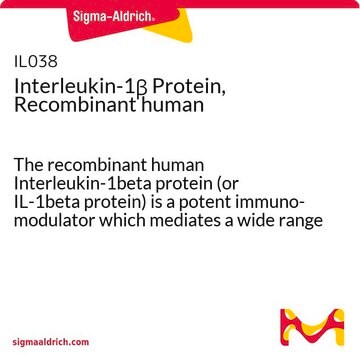G8918
Anti-GRP78/BiP (GL-19) antibody produced in rabbit

IgG fraction of antiserum, buffered aqueous solution
Synonym(s):
Anti-78-kDa Glucose-Regulated Protein, Anti-Immunoglobulin Heavy Chain Binding Protein
About This Item
Recommended Products
biological source
rabbit
conjugate
unconjugated
antibody form
IgG fraction of antiserum
antibody product type
primary antibodies
clone
polyclonal
form
buffered aqueous solution
mol wt
antigen 78 kDa
species reactivity
mouse, hamster, human
enhanced validation
independent
Learn more about Antibody Enhanced Validation
technique(s)
immunocytochemistry: 1:1,000 using mouse fibroblasts NIH3T3 cells
microarray: suitable
western blot: 1:3,000 using human epitheloid carcinoma HeLa whole cell extract
UniProt accession no.
shipped in
dry ice
storage temp.
−20°C
target post-translational modification
unmodified
Gene Information
human ... HSPA5(3309)
mouse ... Hspa5(14828)
Related Categories
General description
Application
- western blotting
- immunocytochemistry
- immunohistochemistry
Biochem/physiol Actions
Physical form
Disclaimer
Not finding the right product?
Try our Product Selector Tool.
Storage Class Code
10 - Combustible liquids
WGK
nwg
Flash Point(F)
Not applicable
Flash Point(C)
Not applicable
Certificates of Analysis (COA)
Search for Certificates of Analysis (COA) by entering the products Lot/Batch Number. Lot and Batch Numbers can be found on a product’s label following the words ‘Lot’ or ‘Batch’.
Already Own This Product?
Find documentation for the products that you have recently purchased in the Document Library.
Our team of scientists has experience in all areas of research including Life Science, Material Science, Chemical Synthesis, Chromatography, Analytical and many others.
Contact Technical Service
